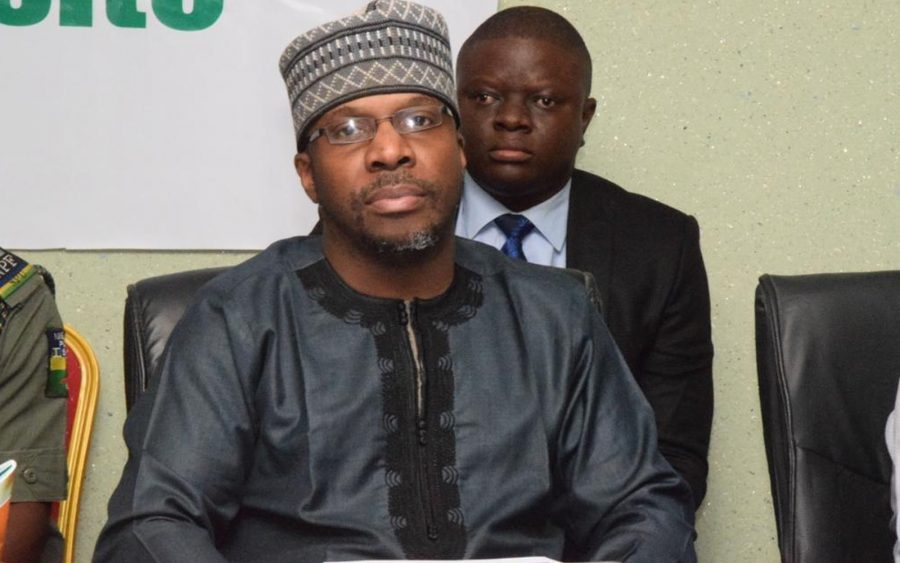The National Bureau of Statistics (NBS) has hit back at the claim of Prof. Steve Hanke that Nigeria’s inflation is actually 33.5% rather than the reported 14.23% as at October 2020. This was disclosed in a tweet on the official Twitter handle of the agency.
READ: Inflation rate, rise and fall explained
In the disclosure, the National Bureau of Statistics (NBS) highlighted seven reasons why Prof. Hanke’s claim is faulty and holds no ground in the Nigerian ecosystem.
READ: A summer of higher food prices, limited room for monetary policy
Highlights of the disclosure
- Firstly, it must be noted that inflation numbers are tirelessly collated, rigorously analyzed, and transparently published by the Nigerian National Bureau of Statistics (NBS), which has yield offices in the entire 744 local governments of the country.
READ: COVID-19: Best and worst case scenarios for the Nigerian economy
- Secondly, what are the so-called “high-frequency data” he uses to reach his unfounded conclusions? Whatever these datasets might be, it is critical to remind the Professor that inflation is not about price changes for a “selected number” of goods/services, but price changes to “all/general” goods/services. If the price of wristwatches doubles over a given period that does not mean the price of maize or beans has also doubled.
READ: Minister discloses major driver of inflation rate in Nigeria
- Prof Hanke’s use of Purchasing Power Parity (PPP) is surprising, as he should know that it comes with a ton of well-known issues. For example, PPP numbers assume that all purchases are done in US Dollars. PPP exchange conversions are problematic, because of the difficulty of finding an exact comparable basket of goods between two countries, especially those that are starkly different like Nigeria and the US. Also, Americans may eat more beef while Nigerians may eat more rice. It then begs the question, “How did the Prof control for these differences in his PPP calculations?”
READ: Naira falls to 12-week low at black market as demand pressure increases
- Many aspects of PPP comparison are theoretically implausible, especially when countries differ fundamentally like US and Nigeria. For example, there is no basis for comparison between the Nigerian Commercial motorcyclist who lives on those earnings and the American Cheese farmer, because Nigerian commercial bike riders are not in America and there are no Nigerian Cheese farmers. So, in general, PPP makes sense when the two countries have much more similar price structure.
READ: UPDATED: Devaluation is here as CBN sells dollars at N380/USD
- While it is certainly true that inflation is rising in Nigeria, Prof Hanke’s figures wildly exaggerated price movements. This is exemplified by the fact that his calculations also suggest that Nigeria experienced deflation between May 2017 and May 2018, which does not line up at all with the reality experienced by any Nigerian during that period of time.
READ: Nigeria’s inflation rate hits 13.71% as food prices soar
- Also, Professor Hanke did not note that values under 25% must be considered unreliable. However, if this is the case, it is unclear how the same methodology can therefore be reliable for values above 25%. Any measure of inflation must provide credible estimates, otherwise, it cannot be helpful to any policy maker.
READ: Local Vegetable Oil prices Drop in Latest Household Food Price Survey
- Whilst Prof Hanke’s methodology is not transparently stated, it appears that it is primarily based on exchange rate data. However, this is not a complete picture of the economy as imports only represent about 18% of GDP. Therefore, his numbers would not accurately measure price movements in non-tradable goods like Garri, and non-tradable services like a haircut. Yet, inflation must capture price movement for ALL goods and services rather than a few.
READ: Nigerian Treasury Bills real interest rate falls to -12%
- Knowing Prof. Hanke’s inglorious and controversial history with promoting Currency Boards (a history that was publicized by very many Economists including Nobel Laureate, Paul Krugman; one can see that his bias would be to imply a far more depreciated Naira and problems with Nigeria’s exchange rate system. Of course, both assumptions introduce an upward inflationary bias to Nigeria’s numbers, without the reality on ground to support this outcome.
READ: At 60, can Nigeria keep depending on Crude Oil?
- Finally, aside from the substance of the tweet though, it also reflects something much deeper: self-aggrandizing and largely-unfounded intellectual superiority. It is interesting that a Professor sitting thousands of miles away from Nigeria, claims to know more than the entire bureaucracy of the Nigerian National Bureau of Statistics (NBS), which has buzzing offices and grand staff in each of the country’s 774 Local Government Areas.
READ: Lower disposable income and rising food inflation is a potential crisis
The statement, therefore asked, “Is it possible and/plausible that the Prof knows more than this entire operations?”
What you should know
Professor Steve Hanke in a series of tweets called out the recently released inflation report at 14.23% by the National Bureau of Statistics. The tweet reads, “@nigerianstat measured inflation in Nigeria at 14.23%/yr for Oct. 2020. They must have pulled that number from Sleepy @MBuhari’s hat. I accurately measure inflation every day in Nigeria. Today, it’s 33.5%/yr. This is over 2x the farcical official rate.”
#BREAKING: @nigerianstat measured #Inflation in #Nigeria at 14.23%/yr for Oct. 2020. They must have pulled that number from Sleepy @MBuhari's hat. I accurately measure inflation every day in Nigeria. Today, it’s 33.50%/yr. This is over 2x the farcical official rate. pic.twitter.com/Pqc8kyrOeU
— Steve Hanke (@steve_hanke) November 17, 2020
Recall that Nairametrics had reported earlier in the week that Nigeria’s inflation rate rose by 14.23% (year-on-year) in October 2020, as disclosed by the National Bureau of Statistics (NBS). A reality that was majorly affected by the significant hike in the price of food items and services such as medical services, air transport, hair saloon, amongst others.
